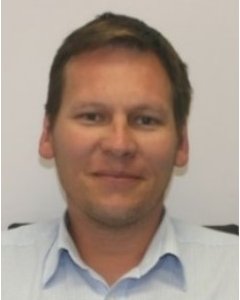
Biography
Experience relevant to research -
I was awarded a PhD from the Medical Faculty of UNSW in 2008 – ‘Differentiation of Human Embryonic Stem Cells into Beta Cell Surrogates as a Therapy for Type 1 Diabetes’. During my PhD studies I co-authored a successful Beta-cell Alliance pilot grant from the Juvenile Diabetes Research Foundation (2005-2007 - $230,000). I received two ‘Merck, Sharp and Dome - Research Awards’ and two ‘Tow Coastal...view more
Experience relevant to research -
I was awarded a PhD from the Medical Faculty of UNSW in 2008 – ‘Differentiation of Human Embryonic Stem Cells into Beta Cell Surrogates as a Therapy for Type 1 Diabetes’. During my PhD studies I co-authored a successful Beta-cell Alliance pilot grant from the Juvenile Diabetes Research Foundation (2005-2007 - $230,000). I received two ‘Merck, Sharp and Dome - Research Awards’ and two ‘Tow Coastal Association - Research Medals’ for oral presentation skills. I also received the ‘Holmes, Wilkinson and Lowry’ PhD scholarship and my PhD studies resulted in the publication of 11 peer reviewed journal manuscripts.
In 2009, I was appointed to a post-doctoral position in the laboratory of A/Prof. Geraldine O’Neill within the Kids Research Institute at Westmead Children’s Hospital, where I researched cytoskeletal regulation of cell migration and cancer metastasis. In this role, I was the sole CI on a successful Category B Cancer Australia – Cure Cancer project grant (2011). I was also awarded the NSW Government Post-Doctoral Award for research excellence (2011) for oral presentation skills and the Australian Society for Medical Research (ASMR) Award (2012).
In 2013, I was appointed to a 2nd post-doctoral position in the laboratory of Dr. Gila Moalem-Taylor at the School of Medical Sciences, UNSW, where I am now focused on neuroinflammation and neuropathic pain research. I was a named associate investigator on a successful Cancer Institute NSW - Translational Program Grant (2015-2020) to support treatment and prevention of chemotherapy-induced peripheral neuropathy (CIPN). I have contributed substantially to establishing a sensory neuron/neuroprotectant assessment assay, which attracted several hundred thousand dollars’ worth of contract work from two separate pharmaceutical companies (2018-2019).
Experience relevant to teaching -
General aptitude: My persona aligns with teaching and education and I enjoy sharing knowledge and motivating others to learn. I have a broad knowledge of physiology and 15 years of medical research experience, with a publication track record in diverse fields including diabetes, developmental biology, embryology, stem cells, cell migration, cancer biology and neuroscience. I completed the ‘Foundations of University Learning and Teaching - FULT’ course in 2017, which increased my awareness regarding education practices. Concepts such as blended learning, reflective teaching and the delivery of technologically advanced, engaging, and interactive content all resonated with my perception of how education and learning should be conducted.
Teaching experience: I have delivered lectures, facilitated small group learning, been responsible for running practical classes, and undertaken tutor and demonstrator duties in dozens of undergraduate classes. I have a wealth of associated experience in undergraduate training having supervised 10 honours students (9 of whom received a first-class grading), along with supervision of several higher degree research students. Furthermore, I have supervised 6 students undertaking research internship programs as part of their undergraduate coursework (NEUR3211 - Neuroscience Research Seminars). My experience with teaching in both the post-graduate and undergraduate settings has been both successful and rewarding. Additionally, I have substantial experience with peer review and regularly examine honours student theses within the School of Medical Sciences at UNSW.
Teaching/Research Skills Interface: In terms of content delivery, I believe I have outstanding communication skills and knowledge, and this is backed up by the fact that I have won multiple awards for lectures delivered at research related conferences and seminars. I regularly speak in front a wide variety of audience types and find public speaking rewarding. For example, I currently give lectures 2-3 times per year at workshops associated with an ‘In Focus’ – Cancer Institute NSW - Translational Program Grant (audience of consumers, clinicians, allied health workers and researchers ~40) and consistently receive positive feedback. I strive to deliver content which is engaging and accessible. I am highly motivated to contribute more broadly to all aspects of tertiary level education and gain further experience in modern practises of teaching.
My Research Activities
Significant Scientific Achievements and collaborations:
- Collaborated with A/Professor Gila Moalem-Taylor and Professor David Goldstein to develop an in vitro sensory neuron assay for the testing of neuroprotection against damaged induced by chemotherapy.
- Collaborated with A/Professor Gila Moalem-Taylor, Professor David Goldstein, and A/Professor Susanna Park to develop an animal model of oxaliplatin induced hemotoxicity and muscle wastage.
- Collaborated with Professor Peter Gunning and utilised live cell imaging in advance 3-D tissue culture systems to create in vitro model of cell migration, recapitulating in vivo microenvironments to describe novel migration patterns of tropomyosin knockout glioblastoma cells.
- Collaborated with Professor Phil Robinson to demonstrate that a novel dynamin ring stabilising molecule inhibits glioblastoma migration in 3-D tissue culture model.
- Co-ordinated research program to differentiate human embryonic stem cells to a pancreatic beta-cell phenotype on biomimetic customised scaffolds in collaboration with Professor Justin Cooper-White.